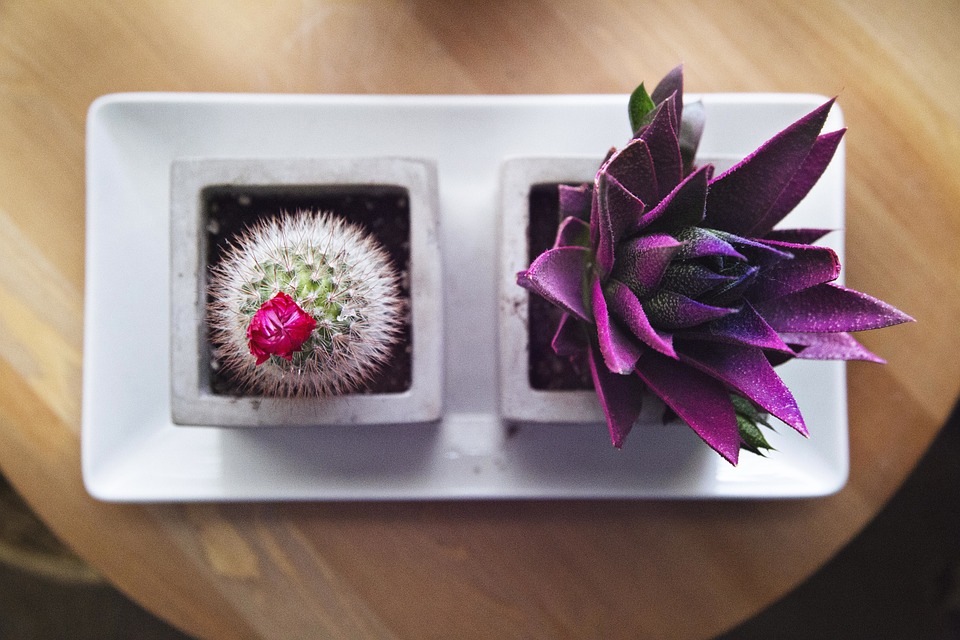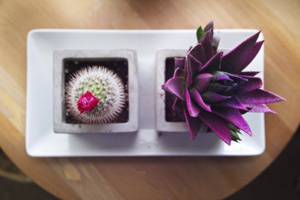Plants kept at home help to bring down stress while creating “a healthier” environment to live in. Nevertheless, keeping plant at home requires additional work, which can often become a “barrier for people”.
Interestingly, a group of students at “Living Product Prize competition” came up with the winning solution that recognises the “importance of having bits of nature in the home”. The winners created their Aquacity that addresses the same problem through bio-mimicry, whereby combining “the structural integrity of a honeycomb, the luminescence and water sensitivity of the Lobed Comb Jellyfish, the habitat of a Suriname sea toad, and the earth’s water cycles”.
The modular of the product creates a “vertical hydroponic plant system” which has the capacity to “adapt to any surface”. Thanks to the “adaptability” plants can be cultivated in a decentralised manner which allows one to “easily create an indoor garden”.
Moreover, the competitors at the “Student Living Product Prize” needed to make their products keeping the framework of the “Living Product Challenge” which could be aligned with their business model, while the products needed to draw their inspirations from bio-mimicry principles.
The design of Aquacity uses “simple, highly-recyclable and recycled materials” including “high-density polyethylene” to manufacture the product. The system does not use any soil, while it has been the team’s estimation that Aquacity’s system would consume ninety percent less water in comparison to “traditional gardening methods”.
The flowing water allows the users to connect with “natural cycles”, while the change in the water’s nutrient levels triggers of the LEDs to change colours for alerting the users. The winners from “California State University” are the recipient of “$1,500”.
Furthermore, the team will also receive training from professionals so that the winning product can be put “into action from ILFI”, marking a recognition of the team’s achievements.
“Contestants in the Open Category are still competing for a $10,000 Living Product Prize, which will be announced at the Living Product Expo, September 13-15 in Pittsburgh”.
References:
http://trimtab.living-future.org/
Interestingly, a group of students at “Living Product Prize competition” came up with the winning solution that recognises the “importance of having bits of nature in the home”. The winners created their Aquacity that addresses the same problem through bio-mimicry, whereby combining “the structural integrity of a honeycomb, the luminescence and water sensitivity of the Lobed Comb Jellyfish, the habitat of a Suriname sea toad, and the earth’s water cycles”.
The modular of the product creates a “vertical hydroponic plant system” which has the capacity to “adapt to any surface”. Thanks to the “adaptability” plants can be cultivated in a decentralised manner which allows one to “easily create an indoor garden”.
Moreover, the competitors at the “Student Living Product Prize” needed to make their products keeping the framework of the “Living Product Challenge” which could be aligned with their business model, while the products needed to draw their inspirations from bio-mimicry principles.
The design of Aquacity uses “simple, highly-recyclable and recycled materials” including “high-density polyethylene” to manufacture the product. The system does not use any soil, while it has been the team’s estimation that Aquacity’s system would consume ninety percent less water in comparison to “traditional gardening methods”.
The flowing water allows the users to connect with “natural cycles”, while the change in the water’s nutrient levels triggers of the LEDs to change colours for alerting the users. The winners from “California State University” are the recipient of “$1,500”.
Furthermore, the team will also receive training from professionals so that the winning product can be put “into action from ILFI”, marking a recognition of the team’s achievements.
“Contestants in the Open Category are still competing for a $10,000 Living Product Prize, which will be announced at the Living Product Expo, September 13-15 in Pittsburgh”.
References:
http://trimtab.living-future.org/


 Aquacity’s Bio-Mimicry Turns Hassles Of Indoor Gardening Into A Simple Chore
Aquacity’s Bio-Mimicry Turns Hassles Of Indoor Gardening Into A Simple Chore





 Companies
Companies